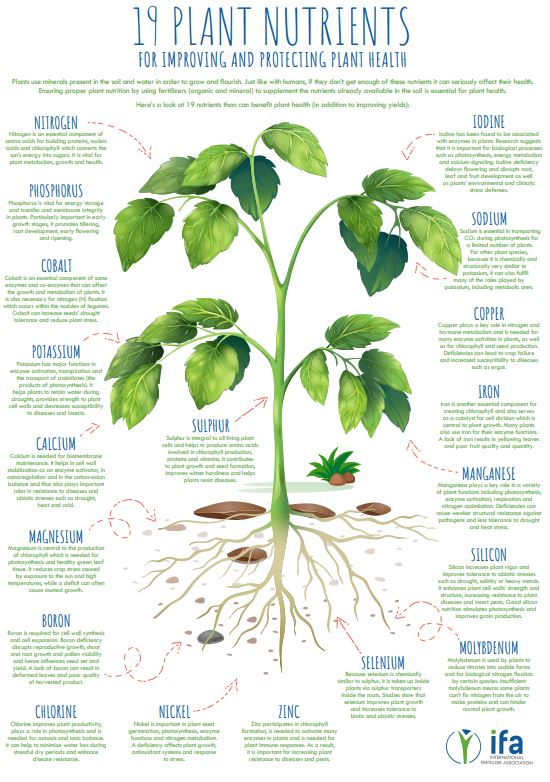What are fertilizers?
Fertilizers are food for plants: they provide nutrients for plants to grow and thrive.
In addition to carbon, hydrogen and oxygen, which they get from the atmosphere and water, plants need numerous essential nutrients for their growth and health, which fertilizers provide:
Nitrogen (N), phosphorus (P) and potassium (K) are the primary nutrients in commercial fertilizers.
Other plant nutrients are sulphur (S), magnesium (Mg), calcium (Ca), zinc (Zn), iron (Fe), boron (B), manganese (Mn), copper (Cu), molybdenum (Mo), chlorine (Cl), nickel (Ni), iodine (I). Additional plant nutrients are required by a few plant species, e.g., sodium (Na) and cobalt (Co).
Mineral fertilizer plays an essential role in our food systems: it increases the volume of food that can be grown on a fixed amount of land.
Approximately half the food we eat today has been produced thanks to mineral fertilizer.
Learn more about plant nutrients in the infographic below.
A mineral plant nutrient is an element which is:
Essential or beneficial for plant growth and development
Essential for the quality attributes of the harvested product of a given plant species grown in its natural or cultivated environment.
FAQ.
Frequently Asked Questions about fertilizers.

